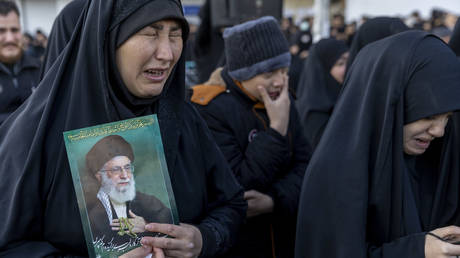
The Knesset removed the Supreme Court’s power to review government decisions and appointments
Israel’s parliament passed the first part of a controversial judicial reform package limiting the power of the Supreme Court on Monday, despite months of intense protest and international condemnation.
The Knesset approved the measure, which limits the Supreme Court’s oversight of government actions and curtails its ability to veto decisions and appointments on the basis of “reasonability,” with a unanimous vote. All 64 members of the governing coalition were in favor, while the rest abstained in protest after the two sides failed to reach a compromise.
Benjamin Netanyahu’s proposed judicial reforms have been hotly debated since the longest-serving prime minister in Israeli history returned to power in December at the helm of the most right-wing government ever to lead the country. While his government claimed the moves were necessary to “restore the balance between the branches of government,” critics have argued that it effectively neuters the Supreme Court, and with it the notion of a democratic Israel.
Opposition leader Yair Lapid lamented the results of Monday’s vote, telling reporters “it is impossible to reach any understanding that will preserve Israeli democracy with this government. They want to dismantle the state.”
Outside the parliament building, protesters staged sit-ins, chained themselves to the gates, and attempted to block roads, hoping to prevent lawmakers from being physically present to vote. Police reportedly used water cannons to disperse the crowds several times.
Israel’s main workers’ union, the Histadrut, is said to be considering a strike, while thousands of reservists with the Israeli Defense Forces warned in the weeks leading up to the vote that they would not report to duty if the reform passed.
The administration of US President Joe Biden issued a rare public critique of its Middle Eastern ally on Sunday, urging the Israeli government to work toward a compromise rather than rushing the “divisive” legislation.
Lapid was briefed by Israel’s internal security service, Shin Bet, about the possibility of widespread unrest should lawmakers fail to reach some kind of compromise on the bill, according to Israel’s Channel 12, while IDF officials briefed Defense Minister Yoav Gallant and his predecessor Benny Gantz about the potential threat to national security posed by so many reservists refusing to fight.
Netanyahu was discharged from the hospital on Monday after having a pacemaker implanted and is expected to meet with the IDF chief of staff on Monday night. He had undergone heart surgery Sunday night and was fitted with a pacemaker just a week after reportedly fainting at his home and being rushed to the hospital.




